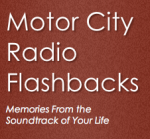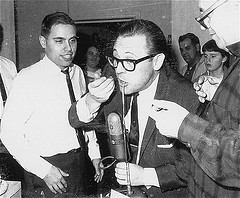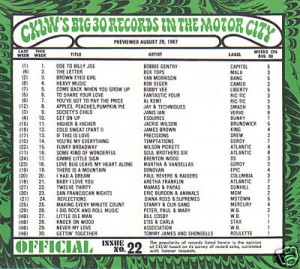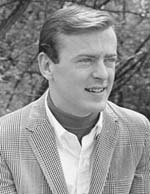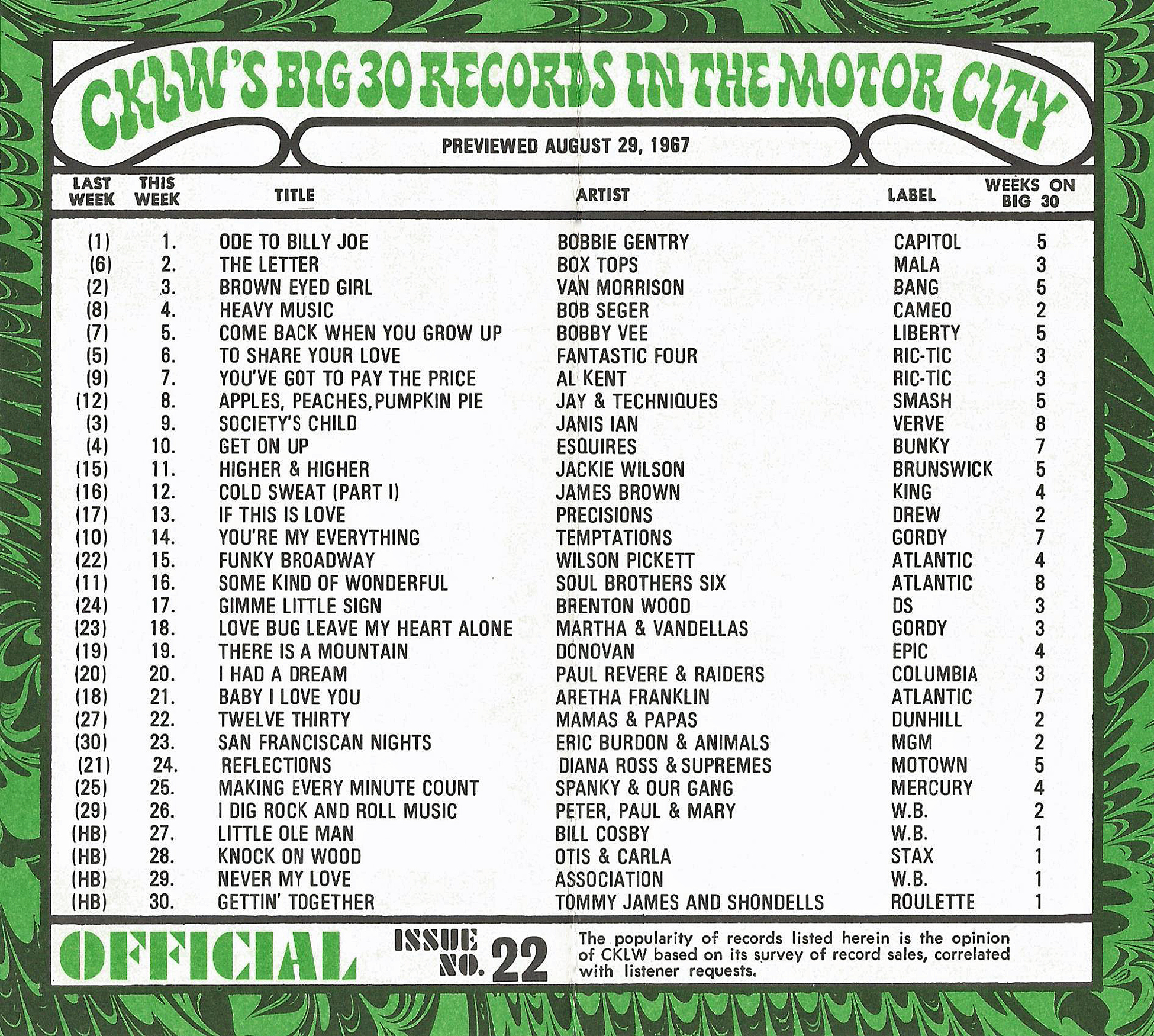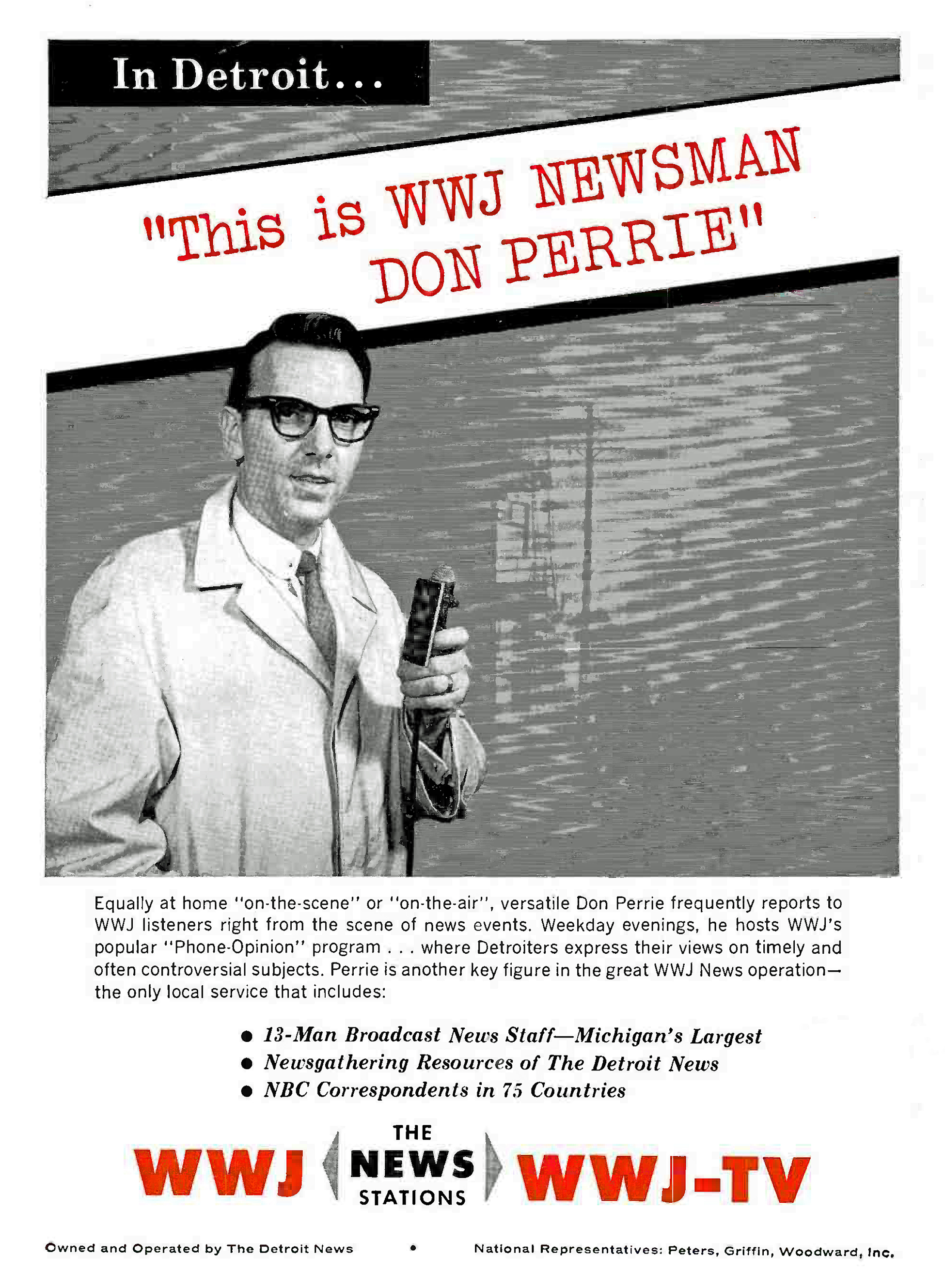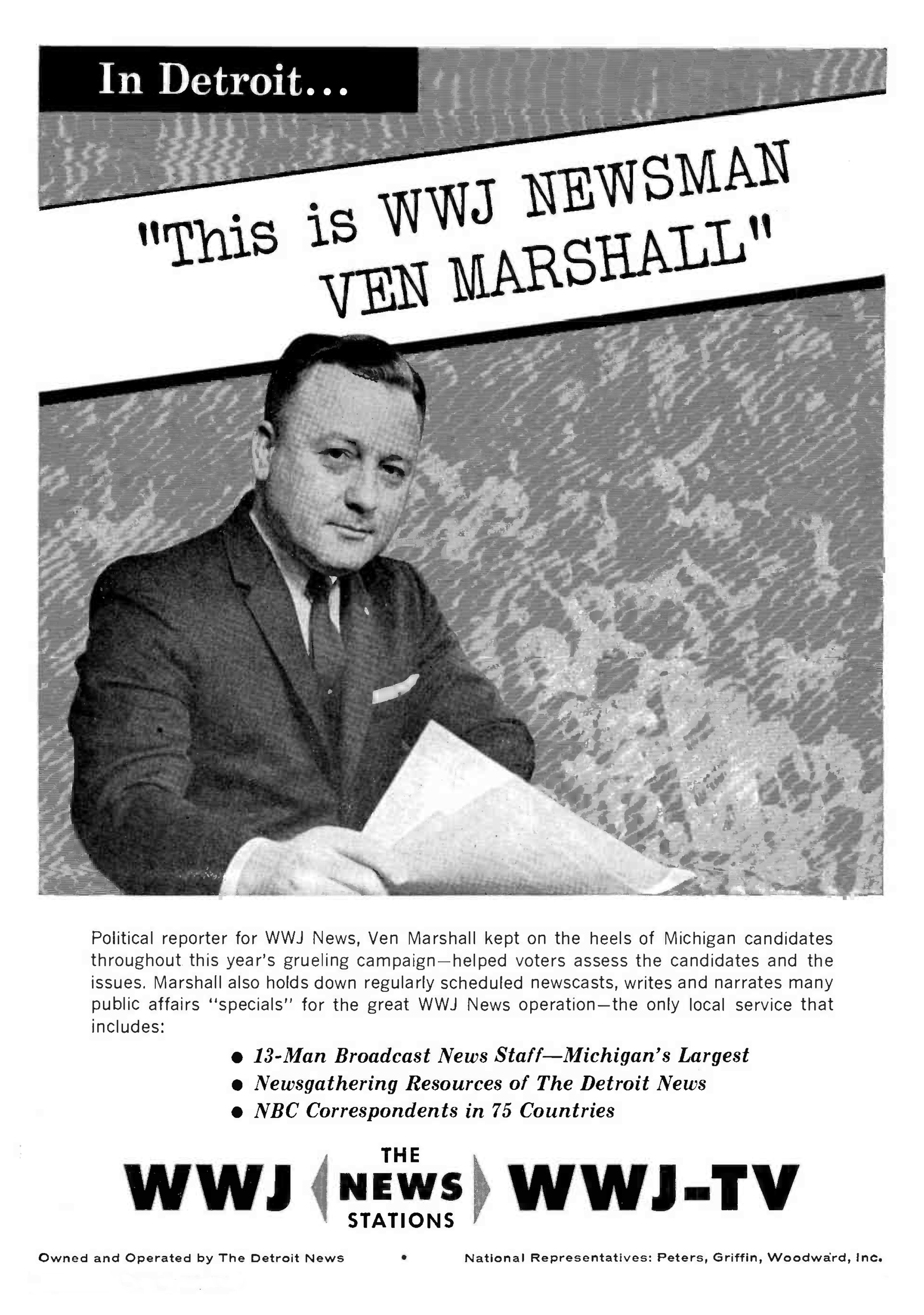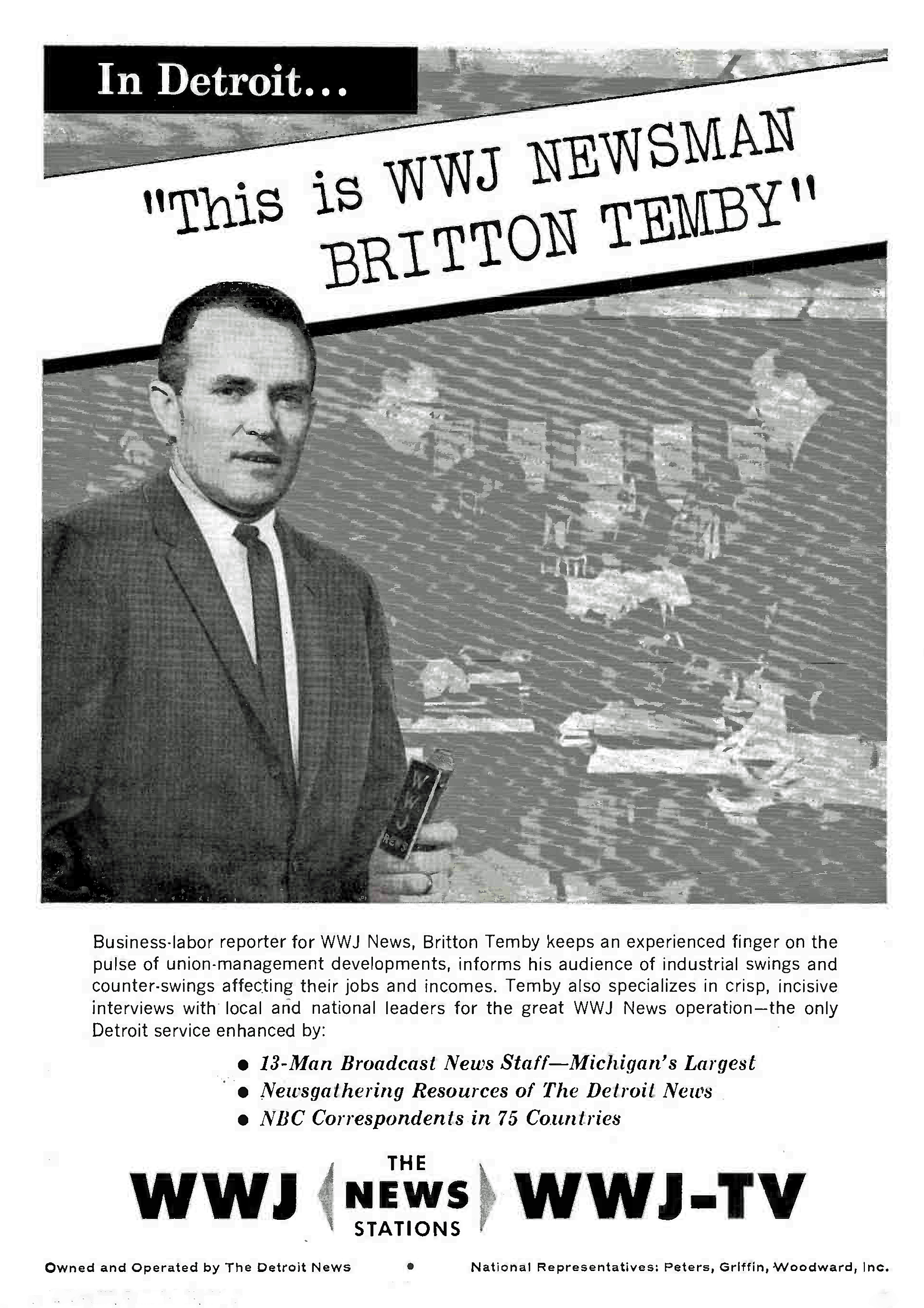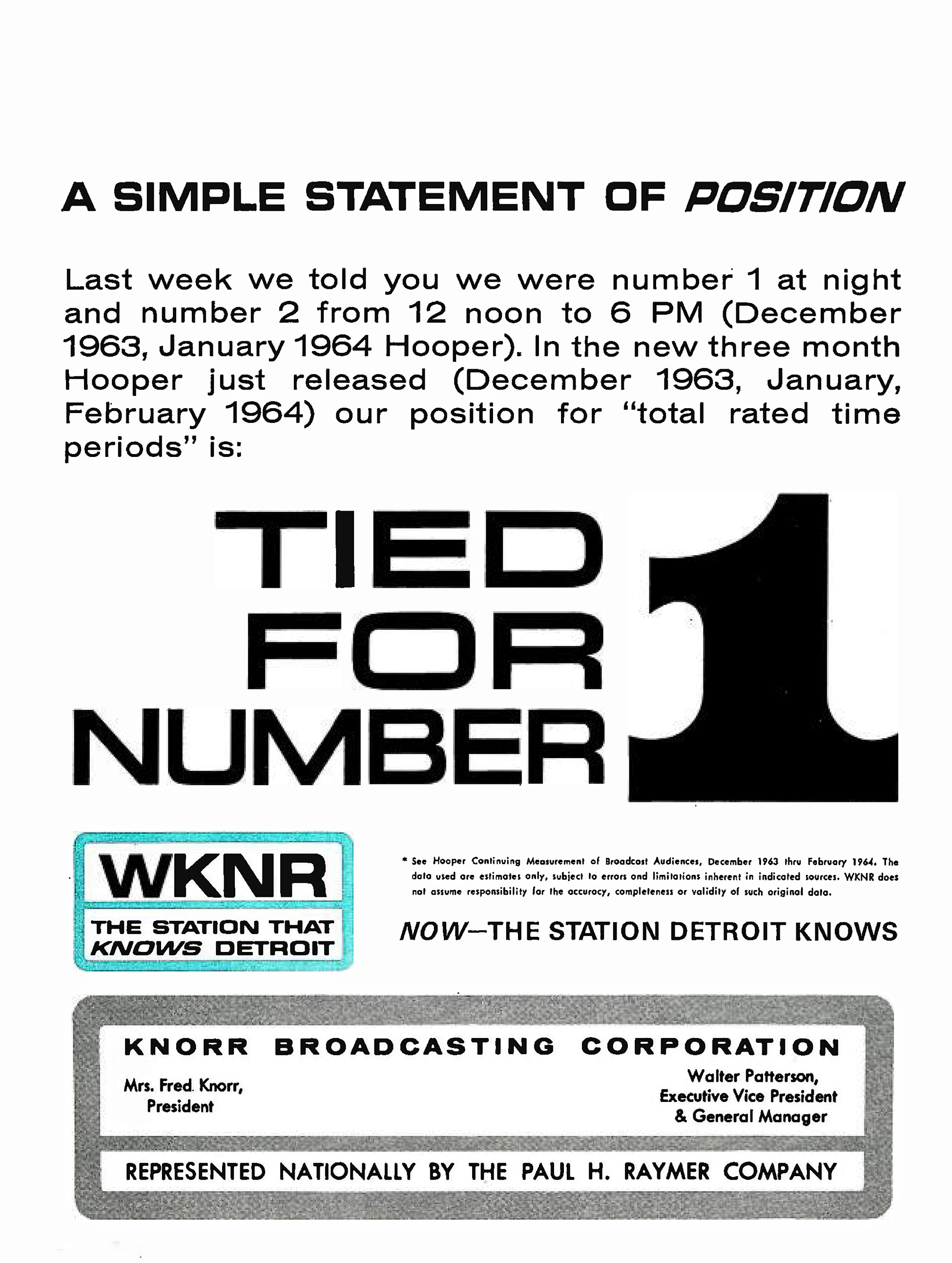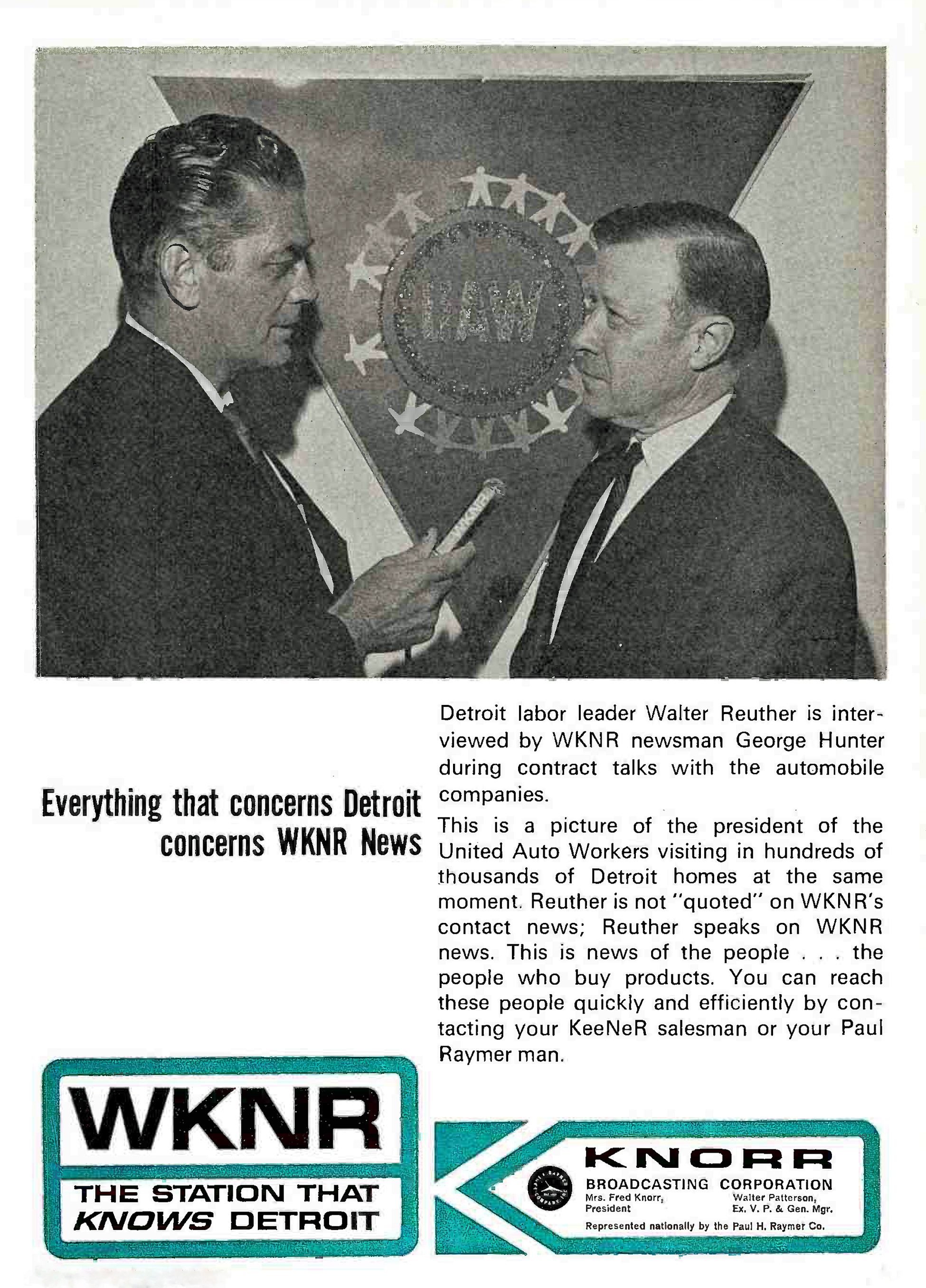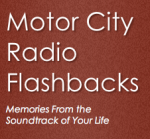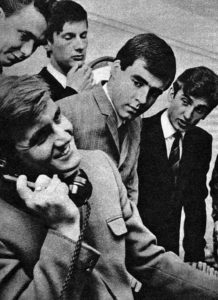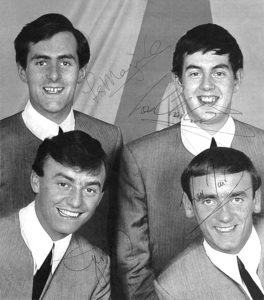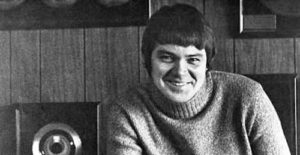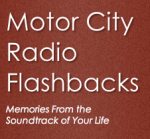 From the MCRFB NEWS archive: 1967
From the MCRFB NEWS archive: 1967
Playlist shortened to 40 Top R&B Playlist; New Jingles by Quincy Jones Added; Quick-paced Delivery Will Be Central Theme
DETROIT — WJLB, Booth Broadcasting’s 1,000-watt R&B operation here, has just launched a new programming policy centering around tighter production, faster-pacing transitions, and has added a new set of custom-jingles by Quincy Jones.
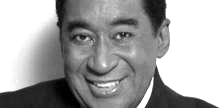
Wash Allen, who just recently took over WJLB programming director duties after being transferred from Booth’s WABQ in Cleveland, said the Detroit station “would be running with a full-blast, exciting young sound.” Play list will be 40 records, to which he will add as necessity demands. “You can never tell how many good tunes will come out in a good week,” he said.
The aim will be to add consistency in programming, Allen said. He felt that his philosophy was the same as Bill Drake, consultant to RKO General stations, and Paul Drew, program director at CKLW in Detroit. “Certain top tunes must be played consistently and deejays must be consistent on their shows. One deejay can’t make a radio station; it has to be a total operation and this is a new concept in R&B radio. In the old days, one guy could make a radio station; he could make a record. It can no longer be like that today.”
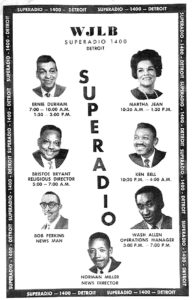
Things are changing so fast in radio, especially in R&B radio, that Allen felt that many older deejays were finding it difficult to grasp what was happening. “To some extent,” Allen said, “it was necessary to teach radio to these people. It wasn’t anybody’s fault that this situation developed. It’s just that times are changing and a radio station has to move with the times.”
Allen begin his radio career with WVOL in Nashville while attending Tennessee State University. He had been with WABQ for about two-and-a-half years before moving to WJLB. He considers himself “a derivative of Ed Wright,” who’s been program director at WABQ prior to joining Liberty Records as head of its Minit label. Allen wrote the lyrics and produced the Quincy Jones jingle custom package. Future plan calls for psychedelic-themed jingles as well.
Station WJLB has brought in new equipment and is building up its news department. In Martha Jean Steinberg and Ernie Durham, Allen felt he had two of the top air personalities of any station in the nation on board. “Now, with the new equipment, we have everything to work with.” END
___
(Information and news source: Billboard; September 23, 1967)
![]()

